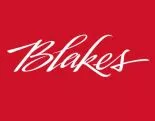In reasons issued by the Ontario Superior Court in Canada (Commissioner of Competition) v. Chatr Wireless Inc., the court penalized Rogers Communications Inc./Chatr C$500,000 for failing to adequately and properly test its "fewest dropped calls" claim prior to making those claims in its advertising. The court issued the administrative monetary penalty notwithstanding the fact that the claims ultimately proved true. The decision should be taken as a caution for companies engaging in comparative or performance-based advertising without having undertaken adequate and proper testing.
BRIEF SUMMARY OF THE CASE
The evidence before the court established that Rogers/Chatr failed to conduct adequate and proper testing against certain competitors in certain cities where Rogers and its competitors offered wireless services. The court rejected Rogers' argument that testing need not have been conducted pre-launch because it was a "technological fact" that the Rogers network out-performed the networks of its competitors.
The court also rejected Rogers' due diligence defence noting that Rogers had an available method of testing the performance of its network prior to the making of the impugned representations, but chose to introduce the unsubstantiated advertisements anyway. Indeed, the court made reference to an internal company document that stated that "[a]t launch, the claim will be based on results inferred from technological fact" effectively ignoring Rogers' obligation to conduct pre-launch testing under the Competition Act. Had Rogers taken all reasonable steps to avoid making the impugned claims or had it operated under a reasonable belief that it had adequately and properly tested its claims, then no fine would have been ordered.
KEY CONSIDERATIONS
While the fact that the claims were ultimately substantiated significantly mitigated the size of the penalty (indeed, the Commissioner sought a penalty in the range of C$5 million to C$7 million), the court could not ignore Rogers' financial position entirely. This should serve as a warning for large companies considering engaging in comparative or performance advertising without conducting adequate and proper testing, since even if the claims ultimately prove true, the risk that they might not is still actionable under the Competition Act.
Although Rogers had never before been penalized under the deceptive marketing provisions of the Competition Act, the court took notice of an injunction obtained against Rogers by a competitor for similar conduct, stating that Rogers' "previous history is a relevant consideration in this application and it aggravates the amount of the administrative monetary penalty."
Finally, the court declined to issue a prohibition order against Rogers largely because Rogers had suffered reputational harm as a result of the Commissioner's application. Even though Rogers' claims ultimately proved true, a number of media outlets mistakenly reported otherwise and Rogers' competitors used the "commencement and existence of the application to try to obtain a competitive advantage."
The content of this article is intended to provide a general guide to the subject matter. Specialist advice should be sought about your specific circumstances.


